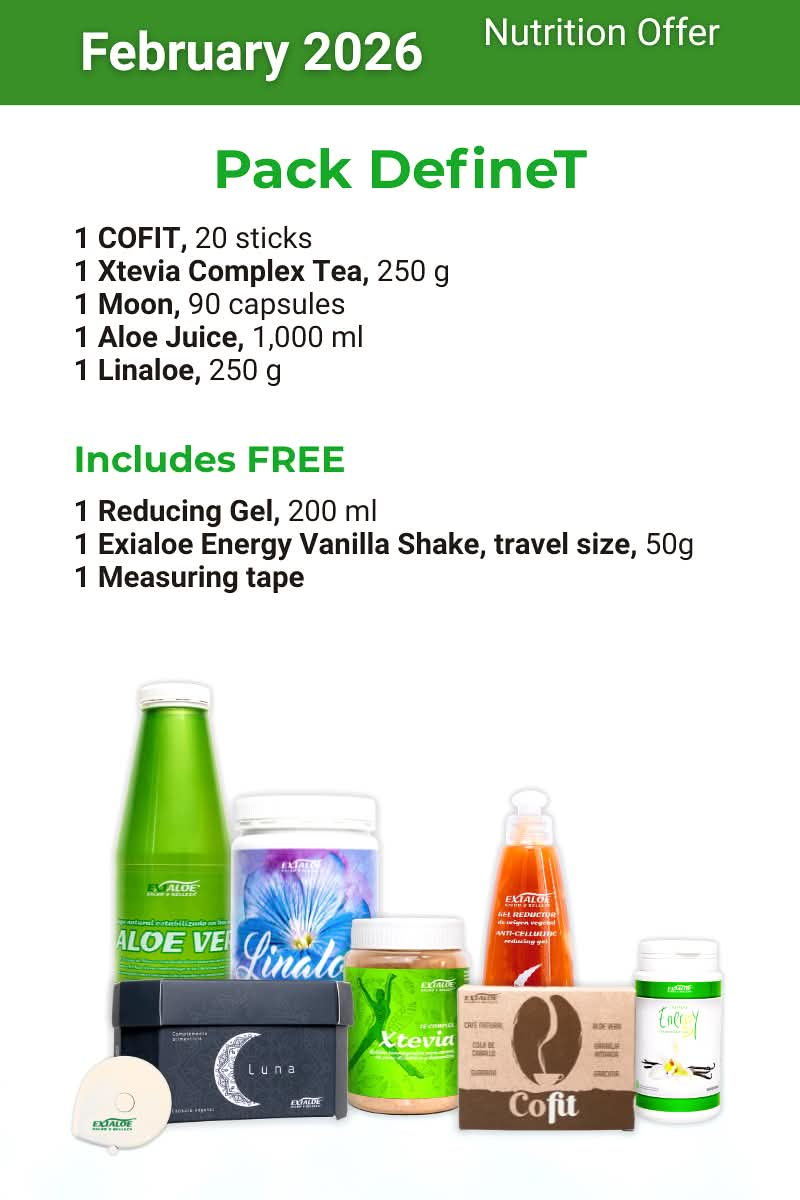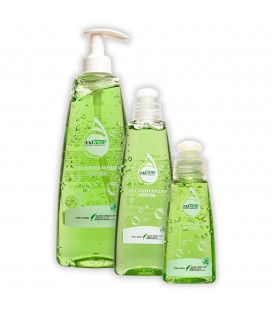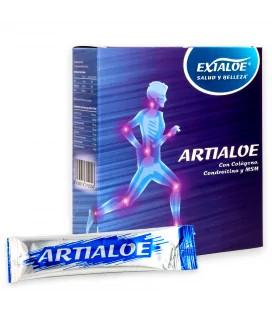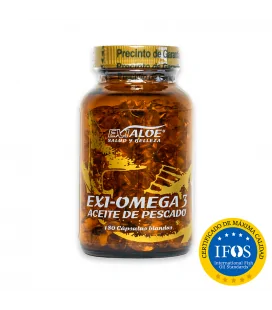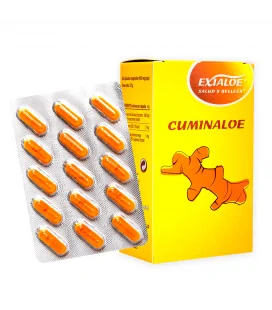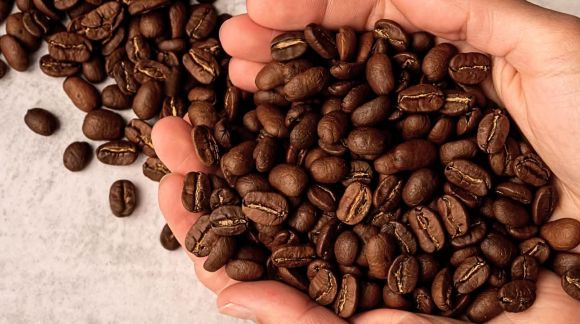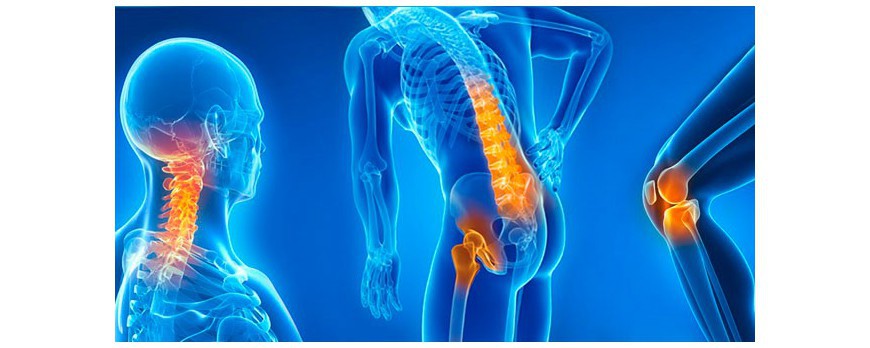
Arthrosis: Remedies against pain and inflamation
ARTHROSIS: REMEDIES AGAINST PAIN AND INFLAMMATION
Arthrosis is a much extended illness that is suffered by the 15 % of the Spanish population, around seven million people.
It affects joints. It is normally located in hands, knees, hip or spinal column. Arhtrosis causes pain, inflammation and hinders to be able to perform so common movements as closing the hand, climbing stairs or walking.
Joints are parts of the skeleton that allow the connection between two bones (such as the elbow, knee, hip, etc) and therefore, the movement. The cartilage is the tissue in charge of coating the ends of these bones and it is essential for the good functioning of the joint as it works as a shock absorber.
Arthrosis comes provoked by the inflammation of the cartilage, these pads protect the ends of the bones and which allow them to rub each other without any problem. In case of arthritis, the inflammatory agents of the joints destroy the cartilage which fissures, cracks and can even completely disappear, leaving the bone naked. When making any movement, the ends of the bones directly rub each other which causes pain and the inflammation of the joints increases.
Which aids do we have to fight against arthrosis?
1. - Against pain: Devil´s Claw
This plant is harvested in the sandy deserts of South Africa and Namibia. The roots are used for the preparation of capsules that contain the main active ingredients: harpagoside, harpagic and procumbed, anti-inflammatory and analgesic substances.
A study published in the year 2003 shows a significant reduction of the pain and of the symptoms of the arthrosis in 75 patients treated with Devil´s Claw. The pain was reduced between 25% and 45% while the mobility increased in the same percentage. (1)
If we consider the results of all the studies made about this topic, the Devil´s Claw would have the same level of effectiveness as the conventional medicines to calm the inflammation and the pain caused by the arthrosis.
2. - Slowing down the progression of the disease with Omega-3 fatty acids.
Another strategic weapon in its fight against arthrosis it is a substance that allows slowing down the disease: the Omega-3 fatty acids.
The Omega-3 are another star product of the natural medicine that apply to almost everything, which effectiveness is undeniable and recognised even by the conventional medicine. The Omega-3 are a family of fatty acids found in green leaf vegetables, in determined nuts (specially walnuts), fatty fishes (anchovy, herring, mackerel, sardine, salmon), in line seeds and rape, walnut and line oils.
Once absorbed, these fatty acids generate substances that contain powerful anti-inflammatory properties.
Since 1998 Dr. Bruce Caterson from the University of Cardiff (Wales) and his team, passionately work studying the potential benefits of the Omega-3 supplements about the arthrosis. After several and promising laboratory experiments about the cartilage tissues with arthrosis, these investigators have published the results of their first study in the human being.
And these results have become to be extraordinary promising. Thirty-one people with arthrosis joined the study and waiting to get a full knee prosthesis. Half of the participants took twice a day, between 10 and 12 weeks before the operation, 2 capsules with one gram of cod liver oil enriched with Omega-3 fatty acids. The other half took a placebo. All the patients underwent surgery and after this the cartilages were analyzed.
The result? In the 86% of the cases, the group of patients that had taken Omega-3 there was no trace of the enzymes that destroy the cartilage, against the 26% of the cases of the group that had the placebo. According to the professor Bruce Caterson, “this means that a fatty acid supplement of Omega-3 can reduce or even stop the deterioration of the cartilage and reduce the inflammation and the pain that come with the arthrosis”.
3. - Benefits of the Turmeric for the Arthrosis
*Turmeric reduces inflammation
Turmeric, as well as curcumin are natural anti-inflammatory agents. The anti-inflammatory properties of the turmeric help to slow down the production of inflammatory cytokines, they suppress the metabolic activity of the chondrocytes (bone cells) (a) and prevent the degradation of the cartilage that occurs in the arthrosis. (b)
(a) Chin KY “The spice for joint inflammation: anti-inflammatory role of curcumin in treating osteoarthritis.” Drug Des Devel Ther. 2016 Sep 20;10:3029-3042.
(b) Liu J, He X, Zhen P, Zhou S, Li X. “Inflammatory cytokines and oxidative stress markers in the inhibition of osteoarthritis by curcumin” Zhejiang Da Xue Xue Bao Yi Xue Ban. 2016 May 25;45(5):461-468.
* Turmeric works as an antioxidant in the arthrosis
Curcumin and other curcuminoids existing in turmeric are natural antioxidant and help to improve the antioxidant defences in patients with osteoarthritis. This can indirectly relieve the symptoms.
*Turmeric prevents the loss of cartilage and of the bone
Investigations show that curcumin is an agent that protects bone health and prevents the degradation of the cartilage. It works on the different enzymes and proteins helping to prevent de cell death of bone bells and cartilage. (c)
Curcumin inhibits the activity of the pro-inflammatory enzymes which degrade the cartilage (d).
(c) Henrotin Y, Clutterbuck AL, Allaway D, Lodwig EM, Harris P, Mathy-Hartert M, Shakibaei M, Mobasheri A. “Biological actions of curcumin on articular chondrocytes.” Osteoarthritis Cartilage. 2010 Feb;18(2):141-9
(d) Clutterbuck AL, Mobasheri A, Shakibaei M, Allaway D, Harris P. “Interleukin-1beta-induced extracellular matrix degradation and glycosaminoglycan release is inhibited by curcumin in an explant model of cartilage inflammation” Ann N Y Acad Sci. 2009 Aug;1171:428-35.
*Turmeric reduces the pain
Turmeric and its active ingredient, curcumin, are natural soothers. They reduce inflammation, work on the endogenous opioids vias and on signaling mechanisms of the nerves to relieve the pain.
A study was made e) in which the effect of the turmeric extract was investigated in the osteoarthritis. A group of patients received 1500mg of turmeric a day and the other group received 1200mg of ibuprofen (a common sedative) a day.
The study lasted for 4 weeks. It was observed that the turmeric extract was as effective as the ibuprofen to relieve the pain and the rigidity in patients with arthrosis.
However, there was an abdominal pain and significant gastric discomfort in the group that received ibuprofen. This was not observed in the group that received turmeric as a treatment.
The researchers concluded that the turmeric was a safer and more effective alternative than the usual NSAIDS (non-steroidal anti-inflammatories) to treat arthrosis.
(e) Kuptniratsaikul V, Dajpratham P, Taechaarpornkul W, Buntragulpoontawee M, et al. “Efficacy and safety of Curcuma domestica extracts compared with ibuprofen in patients with knee osteoarthritis: a multicenter study.” Clin Interv Aging. 2014 Mar 20;9:451-8.
4.- To fix the cartilage: glucosamine and chondroitin
In the cartilage, you have “sponge molecules” that attract and keep the water, which guarantees the flexibility and elasticity of the tissues of the joints. These molecules are denominated proteoglycans. Without them, the cartilage would be unable of absorbing the shocks, it would crack, break and completely wear down.
For the cells of the joints to be able to produce proteoglycans, they need two substances: glucosamine and chondroitin.
The researchers have found out that much better results are obtained by directly providing chondrocytes the glucosamine and chondroitin in the shape of supplements taken orally. These substances can in some cases stimulate the production of proteoglycans and regulate the metabolism of the cartilage. In this way, this last one does not only stop degenerating but can also rebuilt new cartilage.
Since more than 20 years, the majority of the studies conclude showing the efficiency of the supplements of glucosamine to relieve the pain in cases of mild or moderate arthrosis. This improvement appears within 2 to 8 weeks and persists for several weeks more after interrupting the treatment. This is due to the anti-inflammatory effect of the glucosamine. (2)
Additionally, and here it is where it lies the main interest related with the anti-inflammatory treatments, the glucosamine could stabilise in some cases the process of destruction of the cartilage. Two studies made in persons with arthrosis in the knees revealed that taking daily 1.500 mg of glucosamine sulphate for 3 years allows stopping the progression of the disease. (3) (4)
Besides, no significant side effects were observed.
What about the chondroitin? The clinic studies that are available suggest that it can relieve pain. It can also contribute to stop or slow down the progression of the disease.
In a double-blind controlled study, the researchers analyzed 120 people with arthrosis in their knees. The treatment analyzed in contrast to the placebo, consisted in taking 800mg of chondroitin sulphate a day during three months, treatment that was repeated another time the same year.
After a year, the individuals that had been treated with chondroitin suffered less pains and the x-rays indicated that the damages of the cartilage had stopped their progression. As in the case of the glycosamin, the positive effect of the chondroitin was prolonged after finishing the treatment. (5)
It also seems that the glucosamine and the chondroitin taken together, show synergies that allow a better effectiveness.
Sources:
(1) Wegener T : Treatment of patients with arthrosis of hip or knee with an aqueous extract of Devil’s Claw (Harpagophytum procumbens DC.). Phytother Res 2003, 17(10):1165-1172.
(2) Vangsness CT Jr, Spiker W, Erickson J. A review of evidence-based medicine for glucosamine and chondroitin sulfate use in knee osteoarthritis. Arthroscopy. 2009 Jan ; 25(1):86-94. Epub 2008 Sep 30. Review. PubMed PMID: 19111223.
(3) Reginster JY, Deroisy R, Rovati LC, Lee RL, Lejeune E, Bruyere O, Giacovelli G, Henrotin Y, Dacre JE, Gossett C. Long-term effects of glucosamine sulphate on osteoarthritis progression: a randomised, placebo-controlled clinical trial.Lancet 2001 Jan 27;357(9252):251-6.
(4) Pavelka K, Gatterova J, Olejarova M, Machacek S, Giacovelli G, Rovati LC. Glucosamine sulfate use and delay of progression of knee osteoarthritis: a 3-year, randomized, placebo-controlled, double-blind study.Arch Intern Med 2002 Oct 14;162(18):2113-23.
(5) Uebelhart D : Intermittent treatment of knee osteoarthritis with oral chondroitin sulfate : a one-year, randomized, double-blind, multicenter study versus placebo. Osteoarthritis Cartilage. 2004 Apr;12(4):269-76.
Featured articles
Coffee: Energy, Antioxidants, and Culture in a Bean - Exialoe
Did you know coffee is a top source of antioxidants? It doesn’t just wake you up; it boosts metabolism and protects...Read More
How to Take Care of Your Eyes in the Digital Age
Today, we strain our eyes more than ever. In this article, we discuss the modern challenges facing our visual health...Read More
Successfully Overcome Seasonal Allergies
Do you suffer from seasonal allergies or know someone who does? In Spain, 1 in 4 people are affected, but this year...Read More

